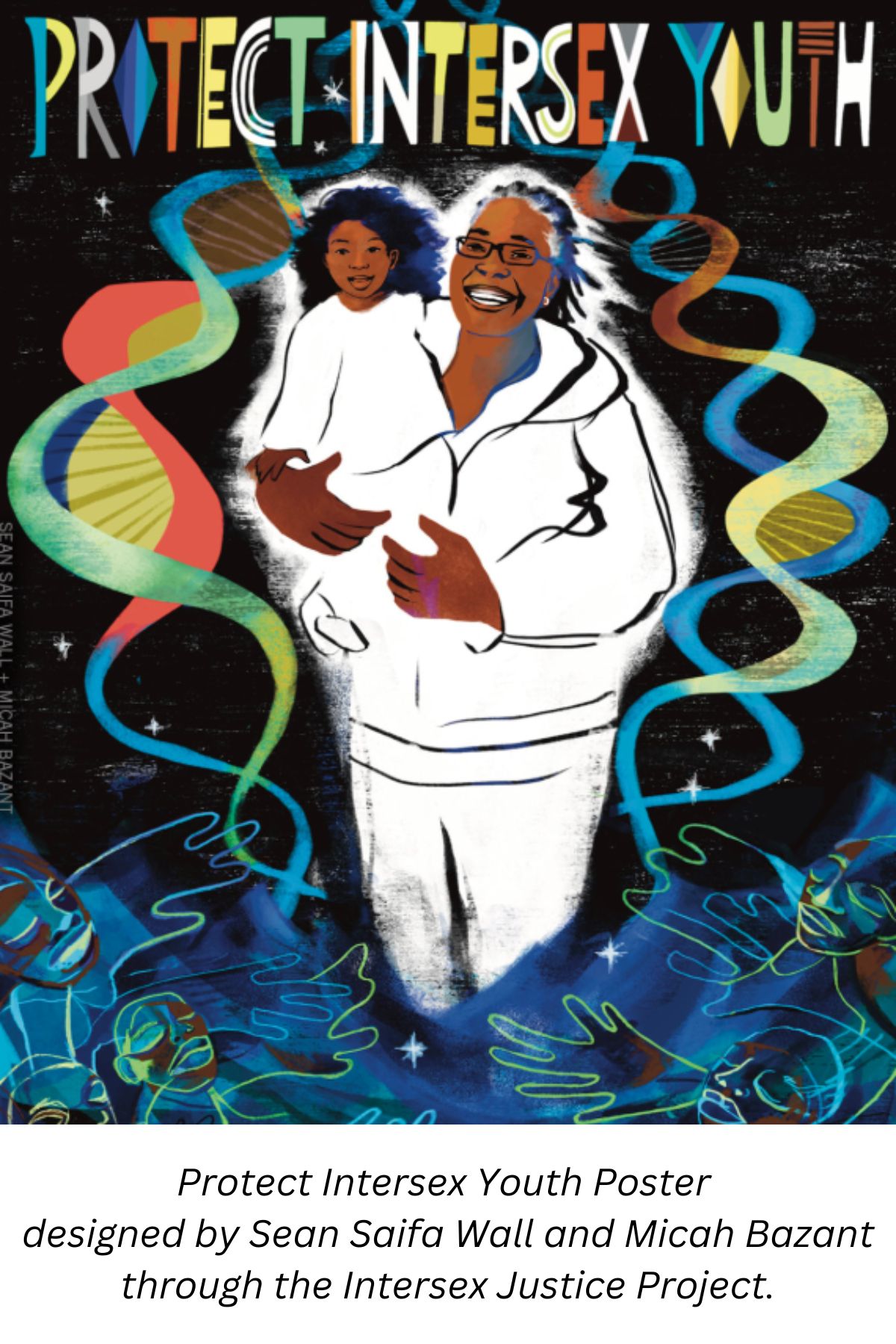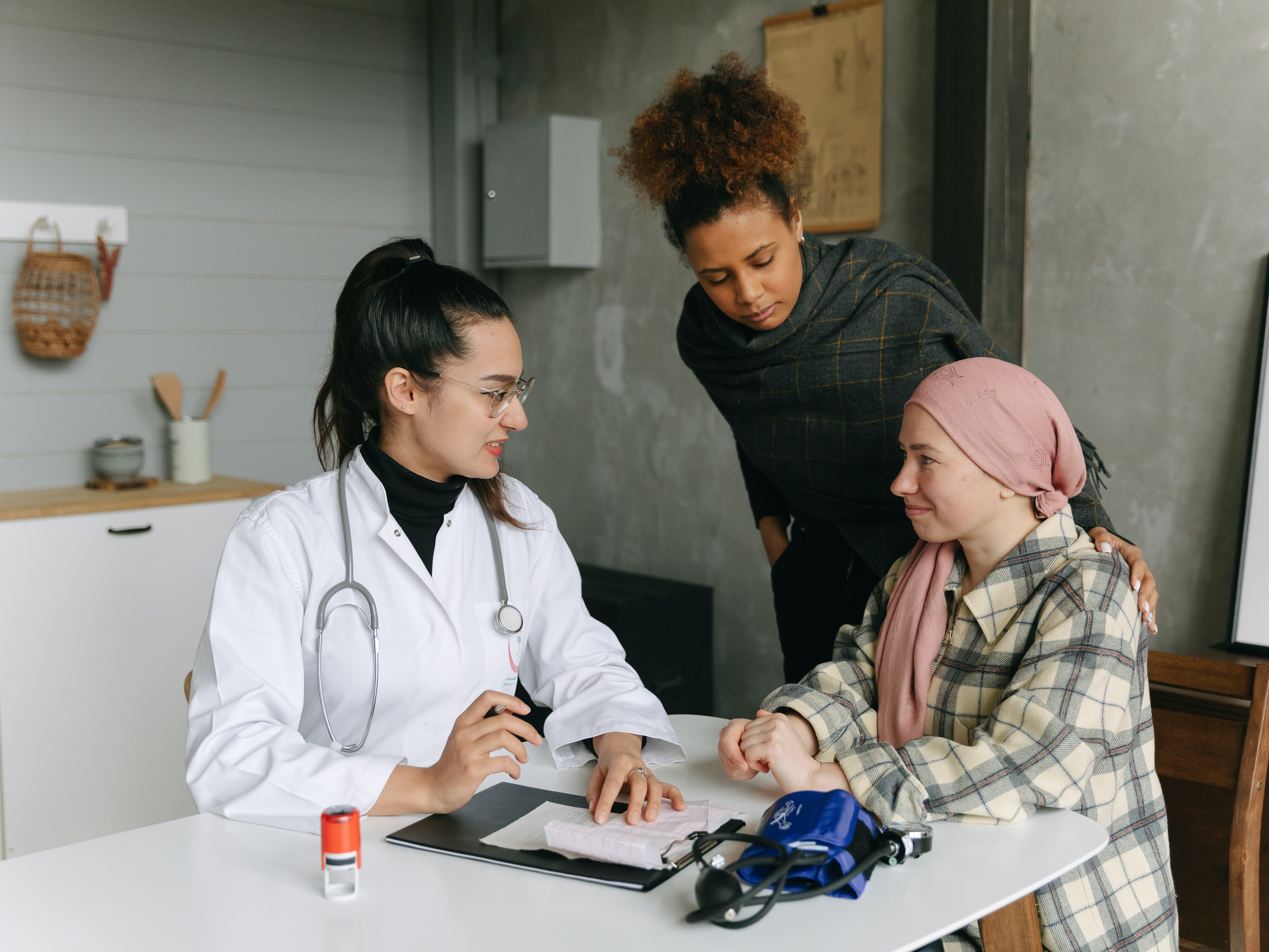
When we consider the intersectionality of sexual orientation and gender identity within the realm of intersex and LGBTQIA+ identities, we must recognize the multifaceted nature of individuals' experiences. For some intersex individuals, navigating aspects of identity may be complex, as their biological sex characteristics may not align with societal expectations of gender. Intersex individuals face a range of challenges in navigating their identities, including medical interventions without their consent, stigmatization, and lack of awareness and understanding from healthcare providers. These challenges highlight the need for clinicians to educate themselves on intersex experiences and provide inclusive and affirming care.
Resources for Clinicians to Support Intersex Patients
 While you may be reading this thinking, ‘I don’t know anyone who is intersex,’ or ‘I don’t work with Intersex patients,’ you might be surprised to learn that you probably do! Intersex variations are as common as having red hair. The United Nations Free & Equal Initiative Intersex Fact Sheet states that “According to experts, somewhere between 0.05 percent and 1.7 percent of the global population is born with intersex traits. The upper estimate is bigger than the population of Mexico.” So, if you know, or have ever seen someone with red hair, you probably know or have seen someone who is intersex too.
While you may be reading this thinking, ‘I don’t know anyone who is intersex,’ or ‘I don’t work with Intersex patients,’ you might be surprised to learn that you probably do! Intersex variations are as common as having red hair. The United Nations Free & Equal Initiative Intersex Fact Sheet states that “According to experts, somewhere between 0.05 percent and 1.7 percent of the global population is born with intersex traits. The upper estimate is bigger than the population of Mexico.” So, if you know, or have ever seen someone with red hair, you probably know or have seen someone who is intersex too.
Clinicians who are looking to better support their intersex patients can benefit from accessing resources specifically tailored to understanding and addressing the unique needs of this community. Two great Intersex-led organizations to help educate you and provide support to intersex patients and their caregivers are InterACT Advocates for Intersex Youth and InterConnect.
These organizations offer information and guidance on how to provide affirming care to intersex individuals and provide help to clinicians who want to educate themselves on intersex identities, familiarize themselves with the challenges faced by intersex individuals, and learn about best practices for promoting the health and well-being of their intersex patients.
Educate yourself, stand with intersex advocacy organizations, and amplify intersex voices to make a difference. Let's strive for a world where every identity is celebrated and respected because diversity strengthens us all. As Maya Angelou once said, "We all should know that diversity makes for a rich tapestry, and we must understand that all the threads of the tapestry are equal in value no matter their color."
So how do I learn more? What resources can I give to intersex patients and their families to support them? Well, to learn more about how to be an ally in healthcare to intersex patients and their families, and for more resources, register today for Intersex Patients: Rehab and Inclusive Care, scheduled for February 8th, 2025!
Additional Resources:
- InterACT Advocates, Lambda Legal (2018). Providing Ethical and Compassionate Health Care to Intersex Patients: Intersex-Affirming Hospital Policies. This guide incorporates input from medical practitioners, legal experts, and members of the intersex community. The guide offers model policies for hospitals designed to promote best practices and assist hospitals and their providers in delivering appropriate, intersex-affirming care. For example, the policies address issues of confidentiality, non-discrimination, gender identification, infant genital surgery, and sterilization, shared decision-making, and informed consent – issues that, when mishandled, can cause significant harm to intersex patients and their families, as well as open up medical institutions to significant liability. The guide also incorporates background information and explanations for each model policy to provide education in an area that has historically been misunderstood.
- Intersex Peer Support Australia (IPSA). https://isupport.org.au/. IPSA is a non-profit organization, led by people with variations of sex characteristics (sometimes known as intersex) who are passionate about combatting isolation, shame, and stigma through community connection and peer support. IPSA seeks to tackle the stigma and misconceptions that surround intersex variations through education and advocates on issues affecting the wider intersex community to improve affirmative healthcare, foster intersex pride, strengthen our community, and deepen social culture. IPSA is a peer-led, not-for-profit intersex organization and a registered health promotion charity.
- InterLink. https://www.ilink.net.au/. InterLink brings people together to talk about living with innate variations in sex characteristics with the support of trained counselors and intersex peer workers. InterLink also provides community care coordination, helping people get linked in with appropriate allied health and community-based services, advocacy, and peer support groups.







































